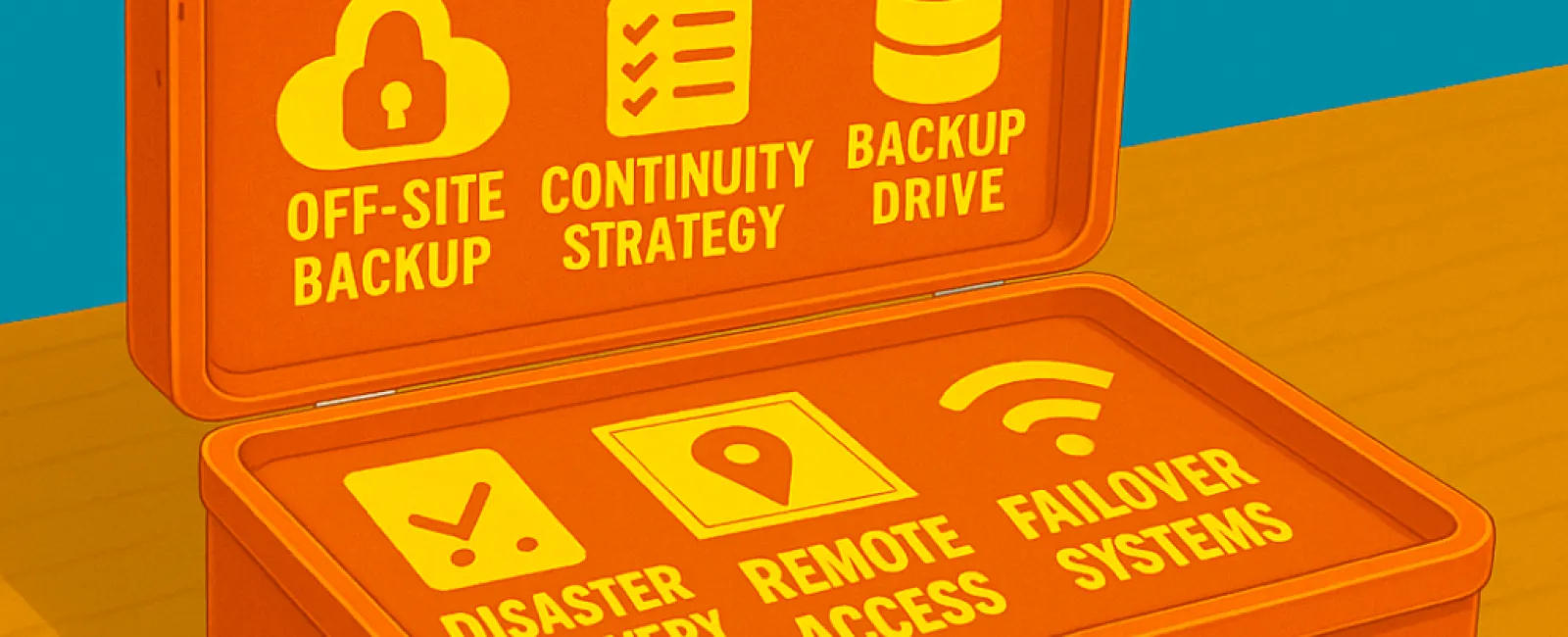July 28, 2025
Unexpected power failures, cyber threats, hardware malfunctions, and natural calamities can strike without notice, causing severe damage to small businesses. Many believe that simply having backups is sufficient, but restoring data alone doesn't guarantee uninterrupted operations. Without access to essential systems, support for remote work, or effective communication with your team and clients, even brief interruptions can lead to long-lasting setbacks. A trusted IT partner should equip you not just with backups, but with a comprehensive strategy to keep your business running smoothly under any circumstance.
Backups Alone Won't Cut It — You Need a Robust Continuity Plan
Backups are undeniably important, but they represent only one piece of the puzzle. What your business truly requires is a proactive business continuity plan that guarantees seamless operations during and after any disruption.
When your systems fail, data becomes unreachable, or your physical workspace is compromised, relying solely on local backup files offers little relief. Without a well-defined plan to swiftly restore functionality, your business risks significant financial loss, damage to reputation, and regulatory non-compliance.
Understanding the Critical Difference: Backups vs. Business Continuity
Many businesses make this crucial mistake:
● Backups safeguard your data.
● Continuity ensures your business keeps running no matter the challenge.
An effective continuity plan addresses vital questions such as:
●
What is our recovery time objective?
●
Where will our team operate if the office is unusable?
●
Which systems are essential for business operations?
●
Who is responsible for activating the recovery procedures?
Key elements of a strong plan include:
●
Encrypted, off-site, and immutable backups
●
Prioritized recovery objectives (RTO/RPO)
●
Preparedness for remote workforce
●
Redundant infrastructure and failover systems
●
Regularly scheduled disaster recovery drills
If your IT provider cannot confidently guide you through these critical aspects, you're not fully protected — you're just fortunate so far.
Could This Happen to Your Business?
This is not a scare tactic; these are real-life disasters impacting businesses every day. Recently:
●
Florida hurricanes forced hundreds of companies to halt operations due to lack of cloud access.
●
North Carolina floods wiped out on-site servers, erasing critical records and invoices.
●
California wildfires destroyed entire office buildings, many without off-site recovery plans.
●
Numerous small businesses affected by ransomware discovered their backups were either corrupted or untested.
Disasters don't discriminate by business size — they impact companies just like yours every day.
Essential Questions You Should Be Asking Today
If disaster strikes tomorrow, can your business keep operating?
Ask your IT provider:
●
How quickly can we recover from a ransomware attack?
●
Are our backups regularly tested, and which systems do they cover?
●
What is the contingency plan if a flood or fire disables our office?
●
Is our business continuity plan compliant with all relevant industry regulations?
●
Can we continue serving clients effectively if our team must work remotely?
If you can't answer these questions with absolute confidence, your business might already be vulnerable.
Disasters Are Inevitable. Downtime Doesn't Have To Be.
While you can't prevent every power outage, storm, or cyberattack, you can control how your business responds.
An effective IT partner helps you bounce back.
An exceptional one ensures your business never misses a beat.
Curious about your business's readiness?
Click Here or call us at (949) 396-1100 to schedule your FREE 15-Minute Discovery Call, and let's safeguard your business against costly downtime.



